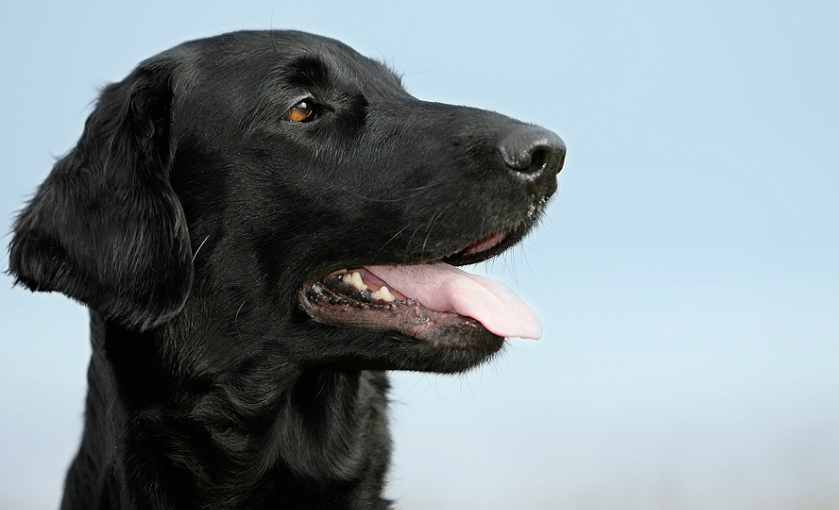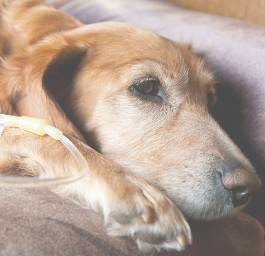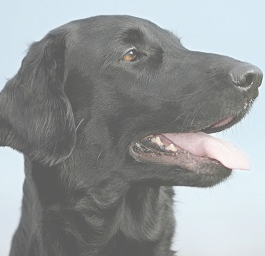Canine Cancer

AKC Canine Health Foundation Canine Cancer Research
Since 1995, CHF and its donors have funded over $18.1 million in canine cancer research. These 271 research grants have helped scientists study cancer at the cellular level, providing breakthroughs that allow veterinarians to diagnose cancer earlier and treat it more effectively. CHF-funded research also has a One Health impact, extending beyond dogs with an application to human cancer diagnosis and treatment.
Canine cancer research is a major concern of dog owners and veterinary professionals. Typically, about one quarter of CHF’s grant funding concerns various types of canine cancers.
View our Cancer Research Portfolio
Resources
Canine Cancer Articles
Canine Cancer Patient Biospecimens Now Available for Scientific Study October 29, 2012
Canine cancer patient biospecimens are now available for scientific use through the Canine Comparative Oncology and Genomics Consortium (CCOGC) and the Pfizer-CCOGC Biospecimen Repository.
Metronomic Chemotherapy May 9, 2012
Barbara Biller, DVM, PhD, an assistant professor of Oncology at CSU, recently tested a relatively new cancer treatment technique called metronomic chemotherapy. The study was funded in part by the AKC Canine Health Foundation (CHF). Dr. Biller explained her research at CHF Breeder’s Symposium in Fort Collins, CO.
AKC Canine Health Foundation Launches Pet Cancer Awareness Month April 30, 2012
The AKC Canine Health Foundation (CHF) launches a public awareness and fundraising campaign to kick off Pet Cancer Awareness Month, May 1-31, 2012.
Focus on Canine Cancer Research April 1, 2012
Cancer can be a devastating diagnosis for both humans and our beloved canine companions. There are 77.5 million owned dogs in the United States and a fourth will develop cancer - including those in the bone, breast, pancreas, liver, prostate, lung, and skin.
Liposomal Clondronate as a Treatment for Malignant Histiocytosis February 1, 2012
Because of its devastating effects on a number of highly loved dog breeds, the AKC Canine Health Foundation sponsors a great deal of research on the diagnosis and treatment of malignant histiocytosis. One such study, initiated by scientists at Colorado State University, has identified a potentially useful new therapeutic option – liposomal clondronate.
Resources Available for Download
Webinars
Cancer Attributable to Infection?
Original air date: June 8, 2022
Speaker: Edward B. Breitschwerdt, DVM, DACVIM
May 2022 Canine Cancer Webinar Series
Available on a pay per view basis through the AKC Canine College.
Predicting Lymphoma in Dogs, Presented by Dr. Daniel Promislow
Luteinizing Hormone Receptor Activation in Lymphoma and Hemangiosarcoma, Presented by Dr. Michelle Kutzler
Toward Curative Outcomes in Canine Hemangiosarcoma, Presented by Dr. Chand Khanna
LIVE Panel Q&A Session, Presented by Drs. Promislow, Kutzler, and Khanna
A Novel Non-Surgical Option to Preserve Limbs in Canine Osteosarcoma
Original air date: May 25, 2021
Speaker: Joanne Tuohy, DVM, PhD, DACVS
Podcasts
Tracie Hotchner Pets podcast spoke with CHF Board Chairman, Dr. Charles Garvin, about CHF-funded grants studying innovative new ways to detect and treat cancer.
The Dog Cancer Answers podcast spoke with AKC Chief Veterinary Officer Dr. Jerry Klein about How to Choose a Dog Breeder. Listen for ways to increase the odds of having a healthy puppy, including the importance of AKC Canine Health Foundation funded research.
How You Can Help
Your support means more studies exploring improved diagnostics and new treatment strategies for canine cancer.
Help Future Generations of Dogs
Participate in canine health research by providing samples or by enrolling in a clinical trial. Samples are needed from healthy dogs and dogs affected by specific diseases.







